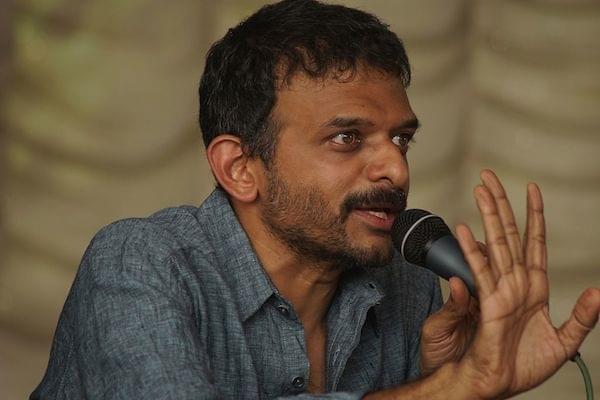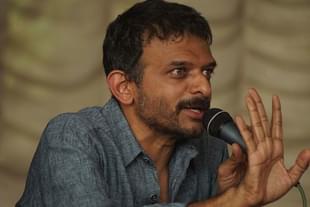Culture
Magsaysay For T.M. Krishna: Citation An Insult To Carnatic Music
Jataayu
Jul 30, 2016, 05:21 PM | Updated 05:21 PM IST
Save & read from anywhere!
Bookmark stories for easy access on any device or the Swarajya app.


The famous Carnatic vocalist T.M. Krishna has been conferred the Magsaysay Award for bringing “social inclusiveness in culture”. This is what the award citation reads:
“He saw that his was a caste-dominated art that fostered an unjust, hierarchic order by effectively excluding the lower classes from sharing in a vital part of India’s cultural legacy. He questioned the politics of art; widened his knowledge about the arts of the Dalits (“untouchables”) and non-Brahmin communities; and declared he would no longer sing in ticketed events at a famous, annual music festival in Chennai to protest the lack of inclusiveness…An ancient vocal and instrumental musical system, Carnatic music started centuries ago in temples and courts but was subsequently “classicised” to become the almost exclusive cultural preserve of the Brahmin caste— performed, organised, and enjoyed by the elite who have access to it.”
Now, this is really an insult to Carnatic music and all the great vidwans and practitioners who keep it alive and vibrant today. How any sincere admirer or lover of Carnatic music can feel “proud” of this award, I wonder.
The provocative “lack of inclusiveness” accusation is baseless and falls flat on facts.
All the esteemed Carnatic music institutions and Sabhas had accorded highest respect to the likes of Veenai Dhanammal, Rajarathinam Pillai, Dhandapani Desikar, Madurai Somu, K.J. Yesudas and many others, all “non-Brahmin” vidwans. Those who regularly attend Carnatic music concerts can instantly recount that they are filled with the Kritis of Puranadara Dasa, Kanakadasa, Arunachala Kavirayar, Muthu Thandavar, Swathi Thirunal etc., all “non-Brahmin” composers, some of whom are also revered as Gurus and saints.
Renowned art historians like Kapila Vatsyayan have recorded how every Indian classical art form transcended caste orthodoxy and rigidity of the regular society and operated on its own rules based on Hindu spirituality and “bhakti.” Carnatic music is also no exception to this.
There might have been individual cases of discrimination and non-inclusion, but then this may be equally true with every field of arts, science, education and public affairs and not just Carnatic music. The way the citation attributes this to the art itself is offensive and deserves condemnation. The narrative mentioned by the citation is a bogus, falsified and perverted view of Carnatic music heritage.
Even though the citation has not been written by T.M. Krishna, the fact remains that he fully endorses it. He does not have any objection to such highly prejudicial caricaturing of an art form which gives him his primary identity.
This is because T.M. Krishna himself continues to play a major role in creating and spreading such a skewed narrative through his writings.
His columns regularly appear in The Hindu, and occasionally in magazines like Caravan and Open. In spite of him being an accomplished and reasonably loved Carnatic vocalist, his writings on the social dimensions of art and culture do not reflect the richness or rootedness of his music. On the contrary, they are filled with distortions and pop sociology theories straight out of the school of the discredited Leftist historians of India.
Now, this narrative has been given further legitimacy with the conferring of a reputed (but highly politicized and criticised) award to him. What needs to be questioned is not the “politics of the art”, as the citation mentions, but the “politics” of this award.
It is to be noted that the columns by T.M. Krishna routinely meander around totally unrelated political controversies also, like “criticising” the Narendra Modi government along well-scripted lines. In his pieces he has Come up with outlandish theories on why many Mylapore Brahmins are supporters of Modi; ridiculed the spirituality of people like Sri Sri Ravishankar while simultaneously praising conversion-ridden social work of Christian missions in the same article; compared the politics of Modi with that of Donald Trump on comical lines, etc. This has created an image of him as an irritating peddler of political correctness for some, these include even those who love and admire his music.
One can’t help but wonder if the Magsaysay award also takes into account such writings by the artist.
Let us avoid discussing the prowess or the artistic qualities of T.M. Krishna’s music, as that is not related to the award. But, even as an activist crusading for social inclusiveness in Carnatic music, T.M. Krishna’s track record has been nothing noteworthy.
One could take into account a few tokenisms like a concert in Oorur Alcott Kuppam, a fisherman’s hamlet in the Chennai outskirts, or the concert along with the artists of Jogappas, a folk music community from North Karnataka. In fact, there has been greater, more far-reaching work that has been done in the past and, also, in the present by many vidwans to take this music to the masses without any high sounding advertisements and political noises.
Carnatic music “rasikas” and insiders are acutely aware of this fact.
Krishna’s proclamation stating why he would stay away from the 2015 December season included some real issues and grievances like intervention of middlemen, less opportunities for talented young artists, sponsors influencing choice of artists, etc. However, it also had outbursts playing the “social discrimination” tune. This was largely perceived as a kind of stunt and crafty scheming rather than a genuine act born out of concern within the Carnatic music community.
The citation further states: “Recognising that dismantling artistic hierarchies can be a way of changing India’s divisive society, Krishna devoted himself to democratising the arts as an independent artist, writer, speaker, and activist.”
Now, calling India’s society as divisive— is it not outrageous, arrogant and interventionist for an award committee, that is based out of the Philippines, and much beyond its limits?
The truth is, India’s society is diverse, largely harmonious, and, fairly egalitarian, compared to the country that has instituted the Magsaysay Award. It is united by strong bonds of dharma, culture, arts and spirituality, of which Carnatic music is one— sustained and nurtured over centuries.
It is such narratives and acts by the likes of T.M. Krishna that are divisive. Perhaps, such divisiveness duly gets rewarded by the vested geopolitical interests which are antithetical to those of India. That’s all one can read into such awards.





